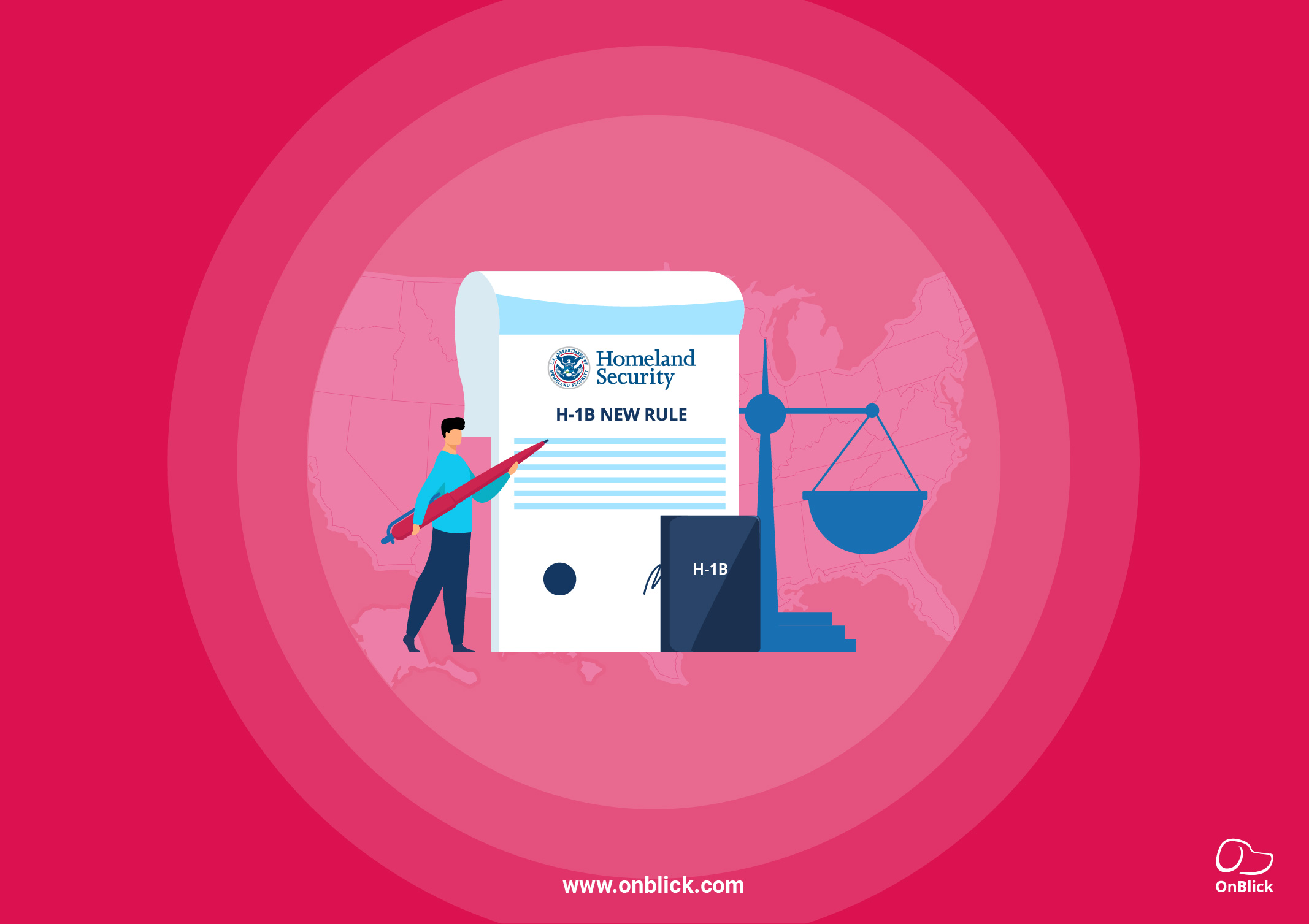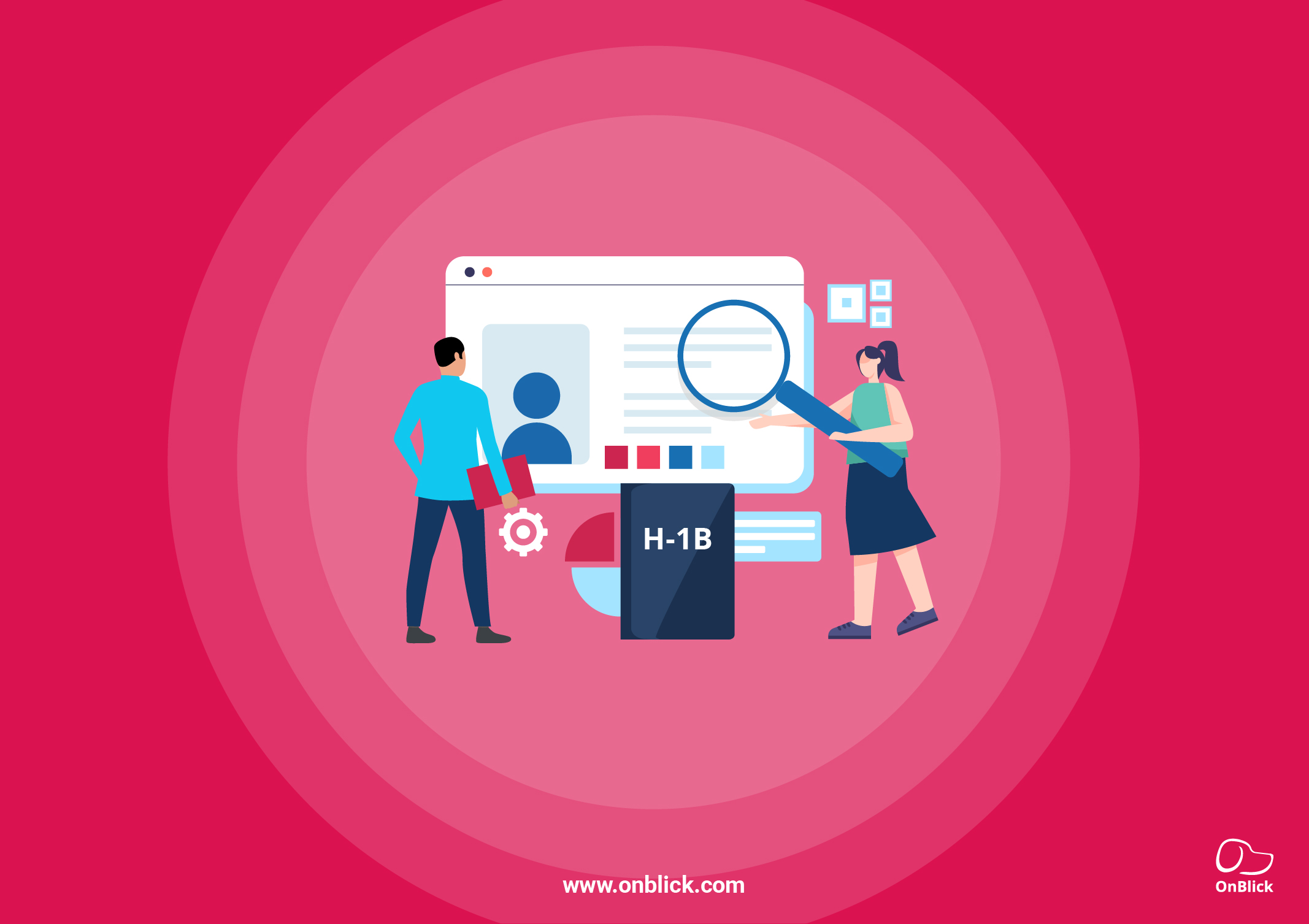The Department of Homeland Security (DHS) recently announced significant improvements to the H-1B visa program, aimed at enabling U.S. employers to fill critical workforce gaps more efficiently. These updates reflect the federal government’s commitment to maintaining the competitiveness of the U.S. economy while ensuring fairness and transparency in the immigration process.
Summary of the Major Provisions of the Regulatory Action
The regulatory updates focus on three core areas to improve the program:
1. Clarifying Requirements and Improving Program Efficiencies
- DHS has revised the definition of a “specialty occupation” to allow a range of qualifying degree fields, provided they are directly related to job duties. This offers employers flexibility while maintaining program standards.
- The deference policy is now codified, meaning adjudicators will generally honor prior USCIS decisions for petitions involving the same parties and underlying facts, unless material errors or changes are found.
- The itinerary requirement for H classifications has been removed, streamlining application processes.
- Employers can now amend validity periods if the requested end date has passed, but the petition remains approvable, reducing administrative challenges.
2. Providing Greater Benefits and Flexibilities for Employers and Workers
- Updated definitions of nonprofit and governmental research organizations recognize “fundamental activity” as a qualifying criterion, broadening eligibility for H-1B cap exemptions.
- Beneficiaries working indirectly for qualifying organizations but contributing significantly to their purpose can now be eligible for exemptions.
- F-1 students transitioning to H-1B status automatically have their lawful status extended until April 1 of the relevant fiscal year to avoid disruptions while their petition is pending.
3. Strengthening Program Integrity
To ensure the integrity of the H-1B program, DHS has codified key enforcement measures:
- Employers must establish that they have a bona fide position in a specialty occupation available at the time of filing.
- Labor Condition Applications (LCA) must align with the details provided in the H-1B petition.
- Employers are required to have a legal presence in the U.S. and be subject to legal processes.
- USCIS has clarified its authority to request contracts and evidence to validate job positions, particularly for third-party placements.
- Site visit compliance is emphasized, with noncooperation potentially resulting in petition denial or revocation.
Summary of Changes from the Notice of Proposed Rulemaking
After considering public comments on the Notice of Proposed Rulemaking (NPRM), DHS made several adjustments to enhance clarity and address stakeholder concerns:
1. Specialty Occupation Definition and Criteria
Degree fields must have a logical connection to job duties, and reliance solely on degree titles is discouraged. References to “business administration” and “liberal arts” have been removed to reflect modern naming conventions.
2. Bar on Multiple Registrations Submitted by Related Entities
While not finalized, DHS implemented a beneficiary-centric selection process, reducing fraudulent registrations by related entities in FY 2025.
3. Contracts and Evidence Requirements
The language was updated to focus on verifying that positions are bona fide rather than reviewing terms and conditions.
4. Non-Speculative or Bona Fide Employment
The term “non-speculative” was replaced with “bona fide”, ensuring clarity and consistency in petition filing requirements.
5. Beneficiary-Owners
A “controlling interest” is defined as owning more than 50% of the petitioning entity or holding majority voting rights. Initial petitions and first extensions for such cases are now limited to 18 months.
6. Updated Fee Regulations
DHS has revised the reference to the fee regulations for Form I-129 from 8 CFR 103.7 to 8 CFR 106.2 to align with the USCIS Fee Schedule Final Rule. The updated costs are:
- H-1B Nonimmigrant Worker: $780
- Small Employers and Nonprofits: $460
This change aims to streamline costs and improve transparency for petitioners.
Implementation Timeline
The new rule will take effect on January 17, 2025, requiring a new edition of Form I-129, Petition for a Nonimmigrant Worker, for all H-1B petitions. USCIS will publish a preview of the updated form on its website soon, as there will be no grace period for accepting older editions of the form.
Key Updates to the H-1B Program in a Nutshell
1. Modernizing the H-1B Process
- Faster application processing for previously approved H-1B holders.
- Expanded degree eligibility for specialty occupations.
2. Expanded Benefits for Employers and Workers
- Automatic extensions for F-1 students transitioning to H-1B.
- New eligibility for H-1B status for beneficiary-owners.
3. Strengthening Program Integrity
- Employers must prove legitimate specialty occupation roles.
- LCAs must match H-1B petition details.
- Codified compliance inspections and stricter oversight.
Conclusion
The DHS’s updates to the H-1B program reflect a significant step forward in addressing the labor needs of U.S. employers while maintaining fairness and transparency. By modernizing processes, enhancing integrity, and providing greater flexibility, DHS ensures that the program meets the demands of a dynamic global economy.
These changes aim to balance the demands of a competitive international workforce with robust program oversight, ensuring that the H-1B visa program continues to support innovation and economic growth in the country.
OnBlick will continue to monitor the final rule and offer more details as they become available. If you wish to know more about OnBlick, book a quick demo today.

.gif)

.png)
.png)











